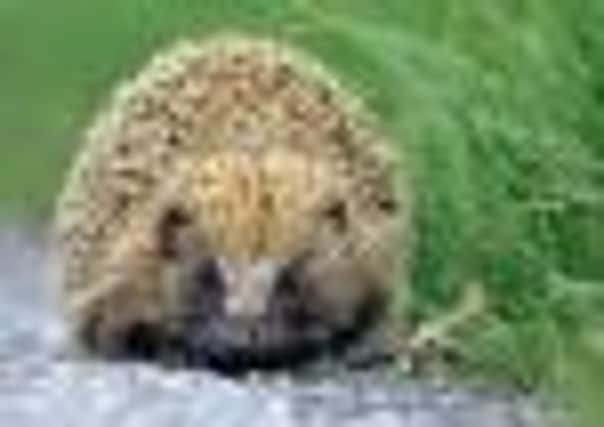RSPB invite to join summer survey


Not only is the RSPB asking people across West Sussex to record birds, it also wants to know about some of the other wildlife visiting gardens, like hedgehogs, squirrels, deer and for the first time ever, slow-worms.
Make Your Nature Count, is the UK’s largest summer wildlife survey and takes just an hour to complete. To take part, simply record what slithers, tweets, forages and snuffles about in your garden or green space.
Advertisement
Hide AdAdvertisement
Hide AdLast year over 1500 West Sussex residents stepped up for nature and took part in the RSPB’s summer survey, revealing that blackbirds were the most frequent garden visitor, being recorded in over 92% of all gardens in West Sussex, closely followed by woodpigeons in 89% and blue tits in over 81%.
Other regular garden visitors included frogs, which were seen in over 29% of the county’s gardens, closely followed by bats in 28%, and hedgehogs in over 23%.
Samantha Stokes of the RSPB South East said: “Gardens are teeming with wildlife at this time of year so it’s the perfect time to sit back and enjoy an hour of wildlife watching.
“Make Your Nature Count is a chance for people in West Sussex to work with thousands of others across the UK to provide an important snapshot of summer wildlife in our gardens, so we can see which species are thriving and which might need our help.”
Advertisement
Hide AdAdvertisement
Hide AdMany people will be coming across nesting birds and chicks at this time of year, and the RSPB is asking participants to pay special attention to young robins, song thrushes and blackbirds. Counting young birds helps to give an indication of how important gardens are for these birds to breed in.
Last summer over 37% of the county’s gardens had young blackbirds and 23% had young robins, but only 4% saw young song thrushes. Fewer than 6% of respondents in West Sussex had house martins nesting under their eaves.
Gardens can be a valuable source of habitat and food for wildlife, and the RSPB is keen to support efforts by gardeners and urban residents to make their homes more wildlife-friendly.
Miss Stokes added: “Urban areas make up about 10 per cent of land in the south east, and more than 80 per cent in London, so there’s plenty of space in towns and cities for helping wildlife if gardens and buildings are used to their full potential.
Advertisement
Hide AdAdvertisement
Hide Ad“With biodiversity still declining, it’s important that we look at every possible way of boosting habitat for a variety of species.”
More information about the charity’s Homes for Wildlife project can be found at the RSPB website www.rspb.org.uk/hfw.
Similar to how the RSPB’s winter survey, Big Garden BirdWatch, identifies trends among wintering bird populations, the RSPB believes, in time, Make Your Nature Count will build a picture about summer wildlife in gardens and green spaces nationwide.
Since its launch in 2009 many different species have been recorded in gardens and green spaces in summer. This information is helping identify how summer species are faring and which may need help. By participating in Make Your Nature Count you can help the RSPB save nature.
Advertisement
Hide AdAdvertisement
Hide AdTo take part, simply spend one hour during the week of June 2-10, counting the birds and the other wildlife that visit your garden or green space, record the highest number of each species seen at any one time and send the RSPB your results.
For further information about Make Your Nature Count, or to submit your results online, visit the RSPB website www.rspb.org.uk/naturecount where an online survey form will be available from 2 June.
Alternatively, ring 0300 456 8330 for a Make Your Nature Count survey form; the hotline number will be operational until 6 June 2012.